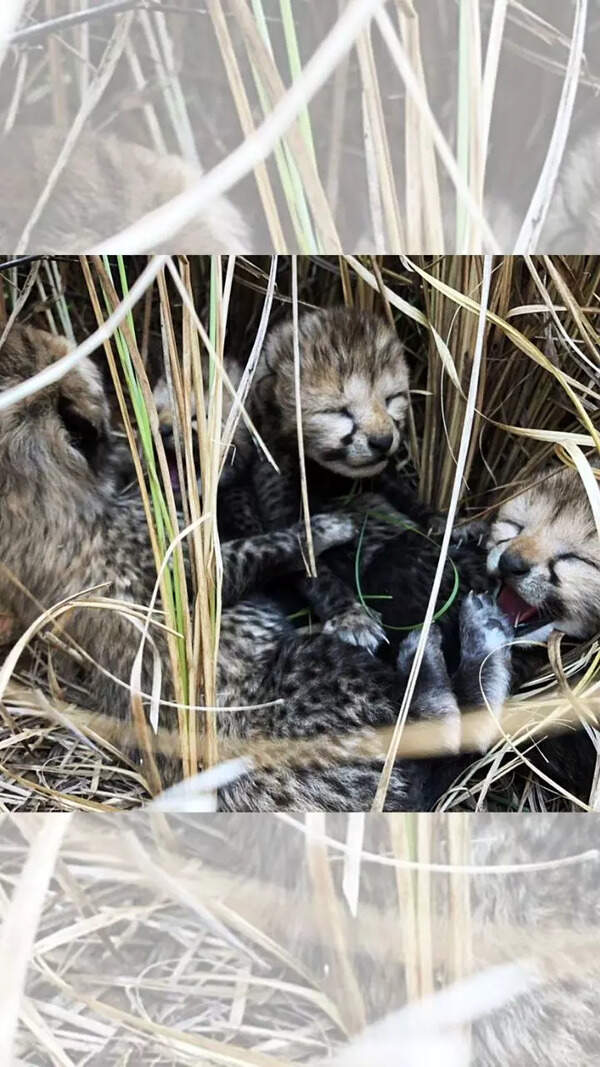- News
- City News
- ranchi News
- Tiger conservation: A hunter's standpoint
Trending Topics
Tiger conservation: A hunter's standpoint

A page from the ‘Brown Hunter’ by late Augustine Imam which depicts the open letter ‘J’Accuse’ to then PM Indira Gandhi
RANCHI: Until the lion learns how to write, every story will glorify the hunter." This African proverb was true, literally, in India till the time hunting was a profession and hunters were celebrities - prior to the enactment of the Wildlife Protection Act of 1972.
Once the act came into force and there was a blanket ban on hunting, hunters stared at an uncertain future. But not only did the hunters face this uncertainty but also the wildlife that was supposed to be conserved, according to a famed 'shikari' or "brown hunters" as Indian hunters were called then.
Late Augustine Imam, popularly known as Tootoo, who owned the Wild Sport of India Pvt. Ltd., a hunting company of the 1960s, had written an open letter to then Prime Minister Indira Gandhi, three years prior to the launch of the Project Tiger, and predicted that a blanket ban on tiger hunting would do no good to the big cat. The professional hunter argued that a complete ban on hunting would have negative results with the feline being poisoned discreetly by man-tiger conflict-hit villagers, thereby decreasing their population in the wild.
As 'Project Tiger' celebrates its golden jubilee this year, a sneak peek into the open letter titled 'J'Accuse' (I accuse, in French) dated August 15, 1970, could pique the interest of the conservationists.
Sharing a copy of the 'J'Accuse', Tootoo's son Padmashree Bulu Imam, who is a nominated member of the Wildlife Preservation Society of India, said had policymakers given credence to the open letter, the fate of tigers would have been different today. "Instead of a blanket ban on hunting, the government could have issued licenses and stopped illegal hunting. That way, the villagers, whose cattle were killed by tigers back in the 70s, would not have taken the drastic step of poisoning the big cats," Bulu, now 80, told TOI.
In his letter, the late Tootoo had said, "A blanket ban on tiger shooting, while lowering your government in the eyes of 55 million underprivileged Indians, will serve no useful purpose. A psychological condition will be created by which jungle villagers in desperation will poison the carcasses of cattle killed and wipe out the predator. Follidol, a crop-dusting insecticide that is deadly of tigers is available to every agriculturist. The lion population of Gir is dwindling due to poisoning by the cattle grazers of the area."
The letter further said, "The tiger population of India has dropped but only to commensurate with the shrinking of our forests, which is in tune with the course of history. If a pond is drying up, you cannot save the fish in it by banning fishing."
Corroborating the predictions of his father, Bulu said the concerns expressed have proved to be true. Quoting excerpts from 'J-accuse', Bulu said the number of tigers as estimated by the International Union for Conservation of Nature (IUCN) in the 1970s was 3,500. "Today, the figure is estimated to be 3,167 after 50 years. So, practically have we been successful in conserving them?" he said.
Once the act came into force and there was a blanket ban on hunting, hunters stared at an uncertain future. But not only did the hunters face this uncertainty but also the wildlife that was supposed to be conserved, according to a famed 'shikari' or "brown hunters" as Indian hunters were called then.
Late Augustine Imam, popularly known as Tootoo, who owned the Wild Sport of India Pvt. Ltd., a hunting company of the 1960s, had written an open letter to then Prime Minister Indira Gandhi, three years prior to the launch of the Project Tiger, and predicted that a blanket ban on tiger hunting would do no good to the big cat. The professional hunter argued that a complete ban on hunting would have negative results with the feline being poisoned discreetly by man-tiger conflict-hit villagers, thereby decreasing their population in the wild.
As 'Project Tiger' celebrates its golden jubilee this year, a sneak peek into the open letter titled 'J'Accuse' (I accuse, in French) dated August 15, 1970, could pique the interest of the conservationists.
Sharing a copy of the 'J'Accuse', Tootoo's son Padmashree Bulu Imam, who is a nominated member of the Wildlife Preservation Society of India, said had policymakers given credence to the open letter, the fate of tigers would have been different today. "Instead of a blanket ban on hunting, the government could have issued licenses and stopped illegal hunting. That way, the villagers, whose cattle were killed by tigers back in the 70s, would not have taken the drastic step of poisoning the big cats," Bulu, now 80, told TOI.
In his letter, the late Tootoo had said, "A blanket ban on tiger shooting, while lowering your government in the eyes of 55 million underprivileged Indians, will serve no useful purpose. A psychological condition will be created by which jungle villagers in desperation will poison the carcasses of cattle killed and wipe out the predator. Follidol, a crop-dusting insecticide that is deadly of tigers is available to every agriculturist. The lion population of Gir is dwindling due to poisoning by the cattle grazers of the area."
The letter further said, "The tiger population of India has dropped but only to commensurate with the shrinking of our forests, which is in tune with the course of history. If a pond is drying up, you cannot save the fish in it by banning fishing."
Corroborating the predictions of his father, Bulu said the concerns expressed have proved to be true. Quoting excerpts from 'J-accuse', Bulu said the number of tigers as estimated by the International Union for Conservation of Nature (IUCN) in the 1970s was 3,500. "Today, the figure is estimated to be 3,167 after 50 years. So, practically have we been successful in conserving them?" he said.
Start a Conversation
FOLLOW US ON SOCIAL MEDIA
FacebookTwitterInstagramKOO APPYOUTUBE










